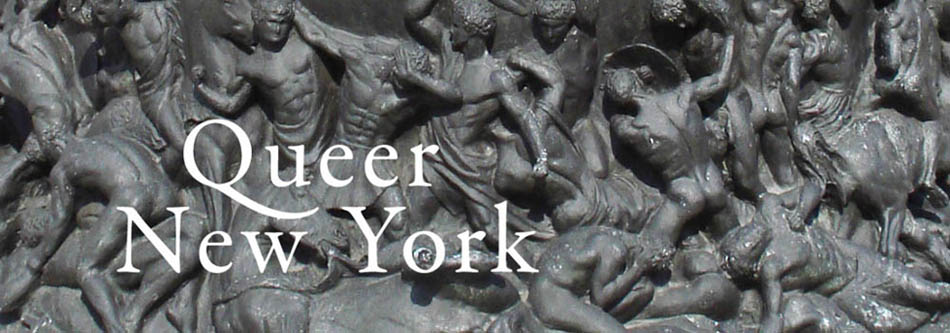Posted by Mondschein
"Ragtime" at the Neil Simon Theatre, December 6, 2009
In its first Broadway revival, Lynn Ahrens and Stephen Flaherty's epic tale of three very different American families makes a triumphant return, focusing on their excellent score.
I count myself fortunate for having seen the original production, at what is now the Hilton Theatre, even if it was late in the run (none of the original leads remained). It was an overwhelming experience - a three story set on which they drove and destroyed a Model T Ford eight times a week.
The focus here, as I mentioned, is now on the score, not a mammoth theatrical installation, although you can't describe Derek McLane's cast iron set small. It's a nice tribute to the old Pennsylvania Station designed by Stanford White, whose personal demise is featured early in the show as Evelyn Nesbitt (Savannah Wise) is introduced.
But I digress.
This revival, while not perfect, is attentive and careful. There have been some judicious cuts here and there and I couldn't help but feel that the book has been "massaged" a bit as well. Director Marcia Milgrom Dodge interweaves the staging to match the interweaving of the plot lines surrounding the rich white folks from New Rochelle, the Jewish immigrants on the Lower East Side and the black folks up in Harlem in the first decade of the twentieth century from E. L. Doctorow's book. Her general staging is thoughtful, though the choreography begs for more attention.
Performances are generally good, but some stand out more than others. Christiane Noll's Mother takes charge, not only of Father's business while he travels to the North Pole with Admiral Perry, but of her family's story line. She's in lovely voice and makes the role her own. Ron Bohmer is at first a stuffed shirt, but ultimately is the only character to say "I love you" in the show. He watches puzzled and lost as the world he thought he knew and ruled falls apart in front of him. As Younger Brother, I had high hopes for Bobby Steggart, but he seems miscast and misdirected. This Younger Brother lacks a boiling passion within, missing the energy and restlessness needed for the role. He seems to nearly sleepwalk through the first act. By the time he works up the courage to join Coalhouse's crusade, it seems to come from nowhere.
Robert Petkoff's Tateh, starts and finishes pretty well, but gets a bit lost along the way. It doesn't help that the slicing of the scene prior to "Gliding"undercuts the power of the lullaby. Stephanie Umoh is a breathtakingly beautiful Sarah. She acts it well, but doesn't seem quite up to the vocal demands of the role. Much the same, Quentin Earl Darrington is a linebacker-sized Coalhouse Walker, Jr. His acting is also strong, but suffers pitch problems, most severely in "Coalhouse's Soliloquy" at the beginning of Act II.
I was surprised to find that this production had not really addressed the flashback to the night Coalhouse and Sarah met which is plopped rather awkwardly in the middle of Act II. Still, the Act I moment when Sarah and Coalhouse reconcile was beautiful and heartbreaking.
Looking back over what I've just written, you'd think I didn't like it very much. Not true - it's a lovely and moving production - not to be missed!
Subscribe to:
Post Comments (Atom)



Why the rearranging and slicing?
ReplyDeleteBecause Mondschein is having trouble wih the mechanics of posting, I'll paste in his enlightening response:
ReplyDeleteHere's what I wrote:
Broadway is first a commercial enterprise. Shorter running times = lower labor expenses per performance. How many 90 minute shows now run with no intermission? Many Broadway producers seem to follow a similar mindset of television that their audience isn't very smart, nor should they be, thus we get the likes of "Brooklyn," "Good Vibrations," and "The Woman In White," with a focus on "popular" over well-conceived or well-written.
In the case of "Ragtime," the original was a long show which could have easily been three acts instead of two. Some of the edits made for this production are indeed prudent. Mr. Doctorow's book is quite epic in scope, so in similar fashion to the way Winnie Holzman and Stephen Schwartz carved the original book "Wicked" into the currently long-running hit, Mr. McNally, Mr. Flaherty and Ms Ahrens had the challenge to shape the enormous story into a cohesive evening of theatre. Some of the subplots proved superfluous to telling the story - - Harry Houdini's story line, in particular. A revival always brings in the advantage of 20/20 hindsight to consider events from the original production. (There was plenty to learn from the mistakes of the original producers, Live Nation, one of whom I believe has just gone to jail for some of those sins.)